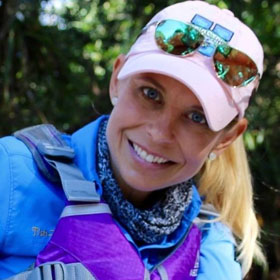3 Ways to Leave a Fishing Legacy
By Debbie Hanson
Aug 25, 2014
As we prepare to leave a fishing legacy, we should focus on three things: knowledge, feelings of empowerment, and values of conservation. Here are three specific ways you can leave a fishing legacy with beginning anglers:
You might still hear the faint echo of your grandfather’s or grandmother’s voice as you draw your arm back in preparation for a cast or when you reach into your bait bucket to grab a minnow. His or her patient instruction and fishing advice has stayed with you all of these years. It’s amazing to think that those same feelings of happiness and serenity you felt while fishing when you were young, could so easily return decades upon decades later.
Depending on the number of years that have gone by, you may now be a grandfather, grandmother, mother, father, aunt or uncle yourself. Why not do your best to pass similar memories and experiences on to younger family members or friends? In other words, make an effort to leave a fishing legacy — a set of lasting values, skills and feelings that you’ve contributed to the angling community.
As we prepare to leave a fishing legacy, we should focus on three things: knowledge, feelings of empowerment, and values of conservation. Here are three specific ways you can leave a fishing legacy with beginning anglers:
Guide a new or beginning angler through the preparation that is involved before a day of fishing. Take a beginner to the tackle store with you when you are ready to select lures or fishing line. Explain why certain lures might be used instead of others depending on the species or water conditions and encourage them to get involved in the decision-making process. As an example, you can help beginners understand why it is helpful to use a leader when fishing for bass in areas of heavy cover that might involve thick reeds or submerged stumps.
Take a new or beginning angler to a fishing spot that is close to where they live, show them how to tie a simple knot, bait a hook or tie on a lure, and work on casting. Once they have the basics down, let them try going through the entire process by themselves while you provide coaching and encouragement.
Demonstrate ways they can help maintain fish populations through sound conservation practices. Show the new angler how to accurately measure different species of fish to ensure they are abiding by the regulations, demonstrate the difference between measuring fork length versus total length, or show them a few proper catch and release techniques.
Now that you have three specific ideas about how you can prepare to leave an angling legacy, we’d love to see photos of you providing guidance to others while on the water. Be sure to log into the Take Me Fishing Community and upload a few photos after your mentoring experiences.
Depending on the number of years that have gone by, you may now be a grandfather, grandmother, mother, father, aunt or uncle yourself. Why not do your best to pass similar memories and experiences on to younger family members or friends? In other words, make an effort to leave a fishing legacy — a set of lasting values, skills and feelings that you’ve contributed to the angling community.
As we prepare to leave a fishing legacy, we should focus on three things: knowledge, feelings of empowerment, and values of conservation. Here are three specific ways you can leave a fishing legacy with beginning anglers:
Guide a new or beginning angler through the preparation that is involved before a day of fishing. Take a beginner to the tackle store with you when you are ready to select lures or fishing line. Explain why certain lures might be used instead of others depending on the species or water conditions and encourage them to get involved in the decision-making process. As an example, you can help beginners understand why it is helpful to use a leader when fishing for bass in areas of heavy cover that might involve thick reeds or submerged stumps.
Take a new or beginning angler to a fishing spot that is close to where they live, show them how to tie a simple knot, bait a hook or tie on a lure, and work on casting. Once they have the basics down, let them try going through the entire process by themselves while you provide coaching and encouragement.
Demonstrate ways they can help maintain fish populations through sound conservation practices. Show the new angler how to accurately measure different species of fish to ensure they are abiding by the regulations, demonstrate the difference between measuring fork length versus total length, or show them a few proper catch and release techniques.
Now that you have three specific ideas about how you can prepare to leave an angling legacy, we’d love to see photos of you providing guidance to others while on the water. Be sure to log into the Take Me Fishing Community and upload a few photos after your mentoring experiences.
Popular Posts









